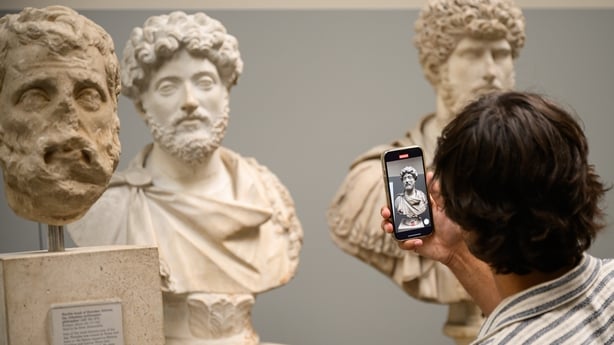The director of the British Museum has quit after admitting that the world-famous institution "did not respond as comprehensively as it should have in response to warnings" about stolen artefacts.
Hartwig Fischer leaves the London museum after it emerged last week some of its collection was "missing, stolen or damaged", prompting both a police investigation and this dismissal of a member-of -staff.
The missing valuables include gold jewelry and gems, and cover a period of almost three and a half thousand years up to the end of the 19th century.
Mr Fischer, a 60-year-old German art historian, said that the museum is now grappling with a crisis "of the utmost seriousness" and that responsibility for it "must ultimately rest with the director".
The museum's board of trustees accepted his resignation, with former chancellor George Osborne, chairman of trustees, saying Mr Fischer had "acted honourably" and that "no one has ever doubted Hartwig’s integrity, his dedication to his job, or his love for the museum".
The museum initially said that Hartwig Fischer would step down "with immediate effect", but later clarified that he would stay until an interim leadership arrangement was in place.

Ittai Gradel, an author, academic and antiquities dealer, had alerted the museum to some of the stolen items.
"I also misjudged the remarks I made earlier this week about Dr Gradel. I wish to express my sincere regret and withdraw those remarks," Mr Fischer said.
"The situation facing the museum is of the utmost seriousness," he added, but conceded that "my presence is proving a distraction".
"That is the last thing I would want. Over the last seven years I have been privileged to work with some of the most talented and dedicated public servants."
In July, Mr Fischer, who has been in the post since 2016, announced he would be stepping down next year.
The museum's deputy director, Jonathan Williams, has agreed to voluntarily step back from his normal duties until the independent review into thefts at the institution has concluded.
The museum said this would happen "with immediate effect".
Founded in 1753, the British Museum is one of the most famous galleries in the world, with a collection of around eight million objects, including ancient artefacts such as Egyptian mummies.
But in recent years the museum has faced increasing pressure to address the contested items in its collection, which were acquired during the era of the British Empire.
This includes one of the museum's prized exhibits, the Parthenon Marbles, also known as the Elgin Marbles, which Greece insists should be returned.
The sculptures were taken from the Parthenon temple in Athens in the early 19th century by British diplomat Lord Elgin and have been held by the British Museum ever since.

